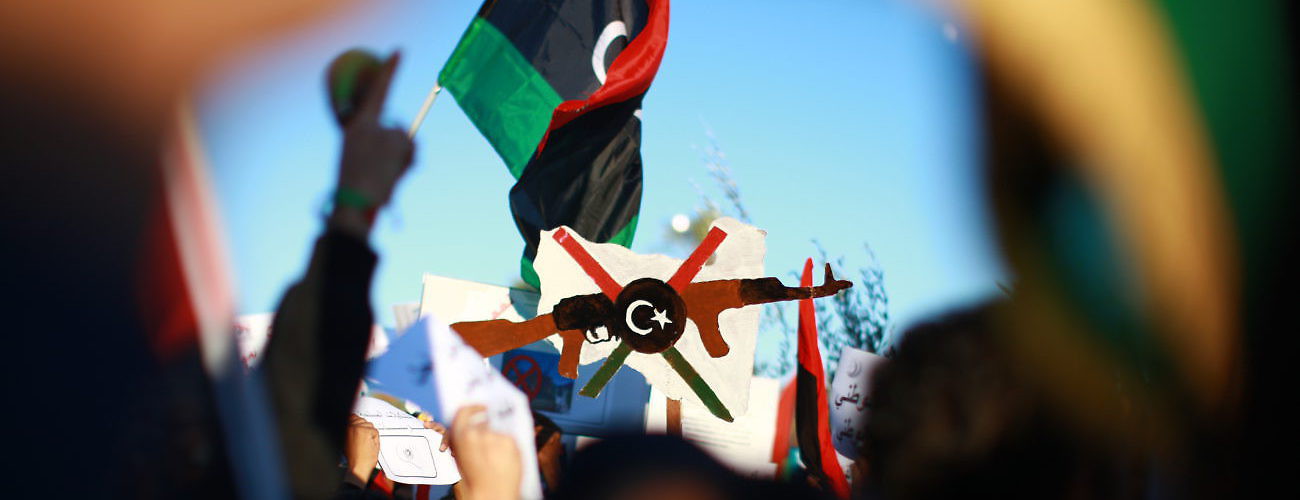A placard of a rifle with Libya’s flag crossed over it symbolizing a rejection of the use of weapons is displayed during a protest demanding disarmament in Tripoli, Libya, December 2011. (Iason Athanasiadis/UNSMIL)
Libya’s overarching statelessness, and the violence and lawlessness that result, permeate the country, which is plagued by local-level conflicts. However, local mediation efforts have flourished over the last few years. As a senior UN official noted, “Local mediation is the best thing that has happened in Libya since the revolution.”
This report examines these local mediation processes to explore the significance of their impact. It focuses on the UN Support Mission in Libya (UNSMIL) and the support it provides internal efforts in Libya to solve local conflicts or the mediation of such disputes. It also describes and analyzes how Libyans themselves are able to address and resolve local conflicts, or at least contain their escalation.
The report offers a number of lessons based on the challenges UNSMIL has faced in supporting local mediation efforts in Libya. These include the importance of leveraging soft power, taking a coordinated and long-term approach, linking the local and national levels, ensuring sovereignty and local ownership, intervening through local mediators, and expanding beyond traditional political actors.








